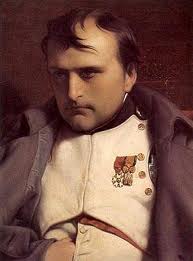Seven Leadership Styles

Alchemist
I’ve often thought of leadership as the ability to motivate people to work together toward a common goal. My definition is not far from Dwight Eisenhower’s quote: “Leadership is getting people to do something because they want to do it.”
Of course, there are different tactics to use in different situations. I study rhetoric – the art and science of persuasion – because I find it very helpful in convincing people that they want to do something. I also like to lay out goals and make them clear as possible. I’m not much of a yeller but I can understand (intellectually at least) how yelling might be a good leadership tactic in some situations – like an emergency.
I hadn’t thought much beyond that, so it was good to rediscover a 2005 Harvard Business Review article titled “Seven Transformations of Leadership”. The authors, David Rooke and William Torbert, identify seven “action logics” that can help us understand what kind of leader we already are.
I’ll summarize the seven here – using Rooke and Torbert’s terminology – partially because I think they’re important but also because I want to refer back to them in future posts.
Opportunists – “characterized by mistrust, egocentrism, and manipulativeness”, their goal is to win in any way possible. Only 5% of leaders are deemed to be opportunists (thankfully).
Diplomats – “seeks to please higher-level colleagues while avoiding conflict.” They rarely rock the boat and comprise about 12% of leaders.
Experts – “try to exercise control by perfecting their knowledge … watertight thinking is extremely important.” Experts comprise the largest single group of leaders, about 38%.
Achievers — “create a positive work environment and focus … on deliverables, the downside is that their style often inhibits thinking outside the box.” About 30% of leaders are achievers.
Individualists – often seen as “wild cards” with “unique and unconventional ways of operating”. Yet they also “contribute unique practical value” and “communicate well with people who have other action logics.” They make up about 10% of leaders.
Strategists – “focus on organizational constraints and perceptions, which they treat as discussable and transformable.” They are “highly effective change agents” but account for only 4% of leaders.
Alchemists – are able to “renew or reinvent themselves in historically significant ways.” They have “an extraordinary capacity to deal simultaneously with many situations at multiple levels.” Rooke and Torbert identify Nelson Mandela as an exemplar of the alchemist, which may help explain why only 1% of leaders fit the category.
Leadership and Motivation
Napoleon once said, “When I realized that men were willing to die for bits of colored ribbon, I knew I could rule the world.” It’s a wholly cynical sentiment but Napoleon was famous for creating and distributing military awards, citations, ribbons, medals, and orders. And for many years, it worked — his troops were highly motivated.
Several hundred years after Napoleon, Tony Blair said something quite similar (though I can’t find the exact quote). A journalist noted

Over to you, Tony.
that Blair was quite the egalitarian and asked if he might not abolish the English system of knighthoods and lordships. Blair responded (more or less), “You must be joking. The system is the most productive, least costly innovation engine in the world. It’s amazing how hard people will work for a tap on the shoulder from the Queen.”
Surprised that the English and the French might agree on something? Perhaps they’re on to something. The moral of the story is that praise and recognition can motivate people even more than money can. I’m surprised that we don’t use it more. I’ve seen far too many managers who are slow to recognize achievements and grudging with their compliments. I’m surprised because, as Tony Blair notes, praise is an inexpensive and productive way to motivate people.
Here’s an experiment. Ask a married couple what percentage of the house work each one does. Ask them separately so one doesn’t hear the other’s answer. Add the two percentages together. Almost certainly, the sum will be greater than 100%. Why? Because each member of the couple has a very good subjective sense of how hard they work. On the other hand, they don’t have that same sense for the other member of the couple. Each one knows how hard they work. It’s quite common that each one feels they deserve more recognition.
Similarly, after a complex project is concluded, ask each member of the team, “What percentage of the value did you personally deliver?” (Again, ask them separately). If the project team has six or more members, when you sum the responses the answer will very likely be greater than 200%. Each person has an inflated sense of how much they contributed.
As a manager, what should you do? The simple answer is to give more praise than you think is absolutely necessary. In fact, give about twice as much as you would normally do. After all, the French and English can’t both be wrong.